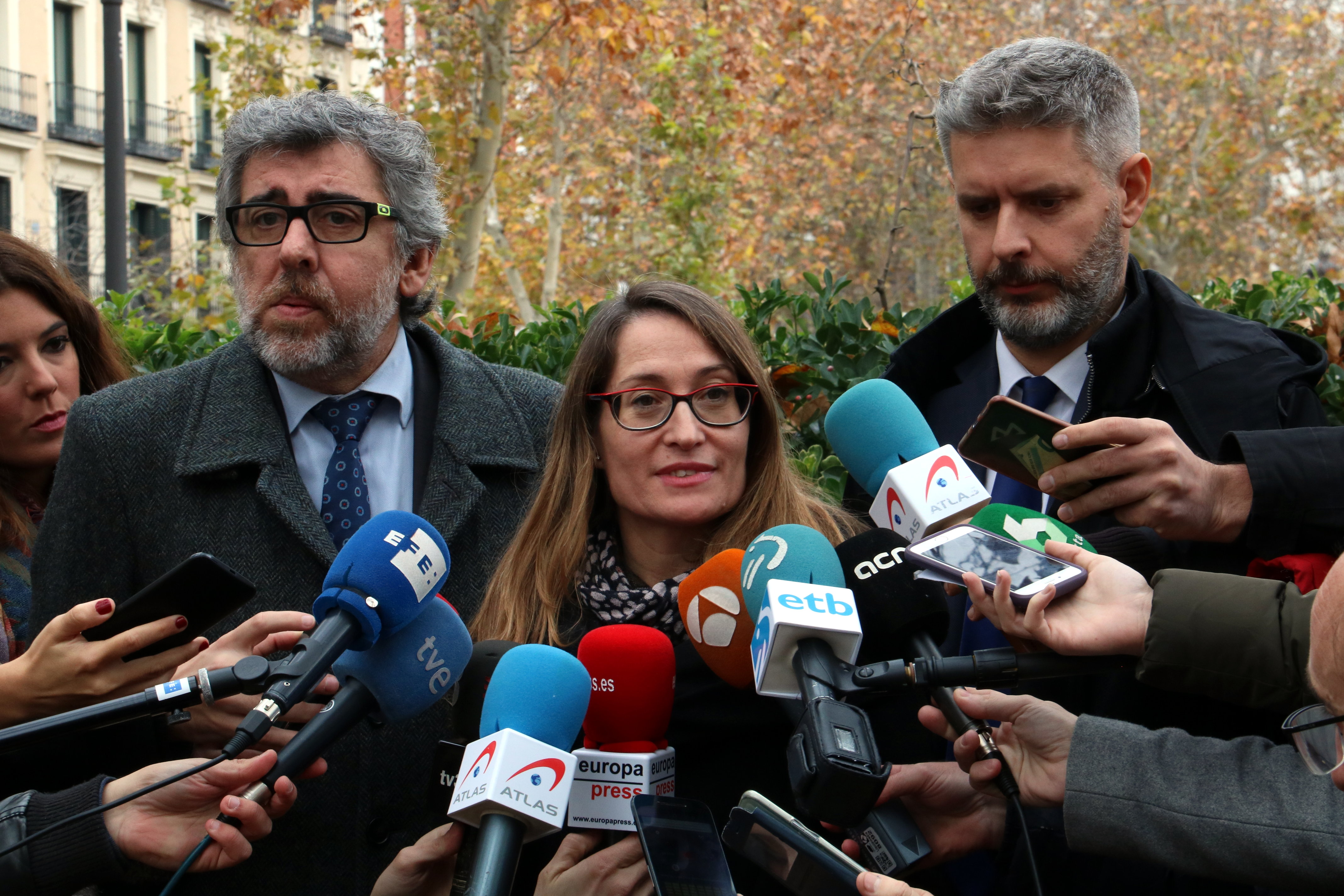Jordi Cuixart’s defense attorney accuses the Supreme Court of sacrificing fundamental rights for the unity of Spain

Marina Roig reiterates that the Supreme Court is not competent to judge Jordi Cuixart and demands that he be tried in Catalonia
Marina Roig, the defense lawyer of the president of Òmnium Cultural, Jordi Cuixart, has openly questioned the Supreme Court, considering that it places a misguided sense of Spanish unity ahead of the defense of fundamental rights. “I wonder if this chamber is willing to continue sacrificing fundamental rights just for the sake of shielding the unity of Spain” Roig inquired before the magistrates.
During the pretrial hearing that took place today in the plenary chamber of the Supreme Court of Madrid, Roig recalled that “the violation of the right to an ordinary natural judge violates other fundamental rights, such as the right to appeal”. In the case of Cuixart, the non-existence of an appeal procedure is even more serious as he does not have parliamentary immunity.
During her turn, Marina Roig explained why the Supreme Court is not competent to judge the president of Òmnium Cultural, Jordi Cuixart, and has argued that this procedure has violated the law for political reasons: “Of all the possible courts that could handle the current procedure, a Court of First Instance, the Provincial Court of Barcelona, the Superior Court of Justice of Catalonia, and the Supreme Court, the exceptional choice has been made to opt for the court that is closest to the prosecution and most sensitive to the influences of political and economic power”.
Cuixart’s lawyer recalled that “the complaint was filed in a court lacking jurisdiction, with a State Attorney General who had been a member of this court for 14 years and had shared a chamber with some of the members that now make up the trial room”.
Roig demanded that the court recuse itself judging the case and that the trial should be held in Catalonia. Otherwise, we would be before an “exceptional court, which violates not only the right to a natural judge but also the right to appeal.” Roig also lamented the impossibility of declaring in Catalan with full guarantees.
The lawyer has also emphasized that Cuixart has never enjoyed parliamentary immunity and that it is not charged with having committed any of the offenses included in the indictment abroad. “The prosecution of Cuixart, who is a civilian leader, represents the criminalization of fundamental rights such as the right peaceful mobilizations,” he said. In this sense, she has argued that the right to vote or the promotion of political debates cannot be constitutive of crimes such as rebellion or sedition.
Roig has concluded that the interpretation of the law “has been stretched like chewing gum, in a clear case of politics being judicialized.”

